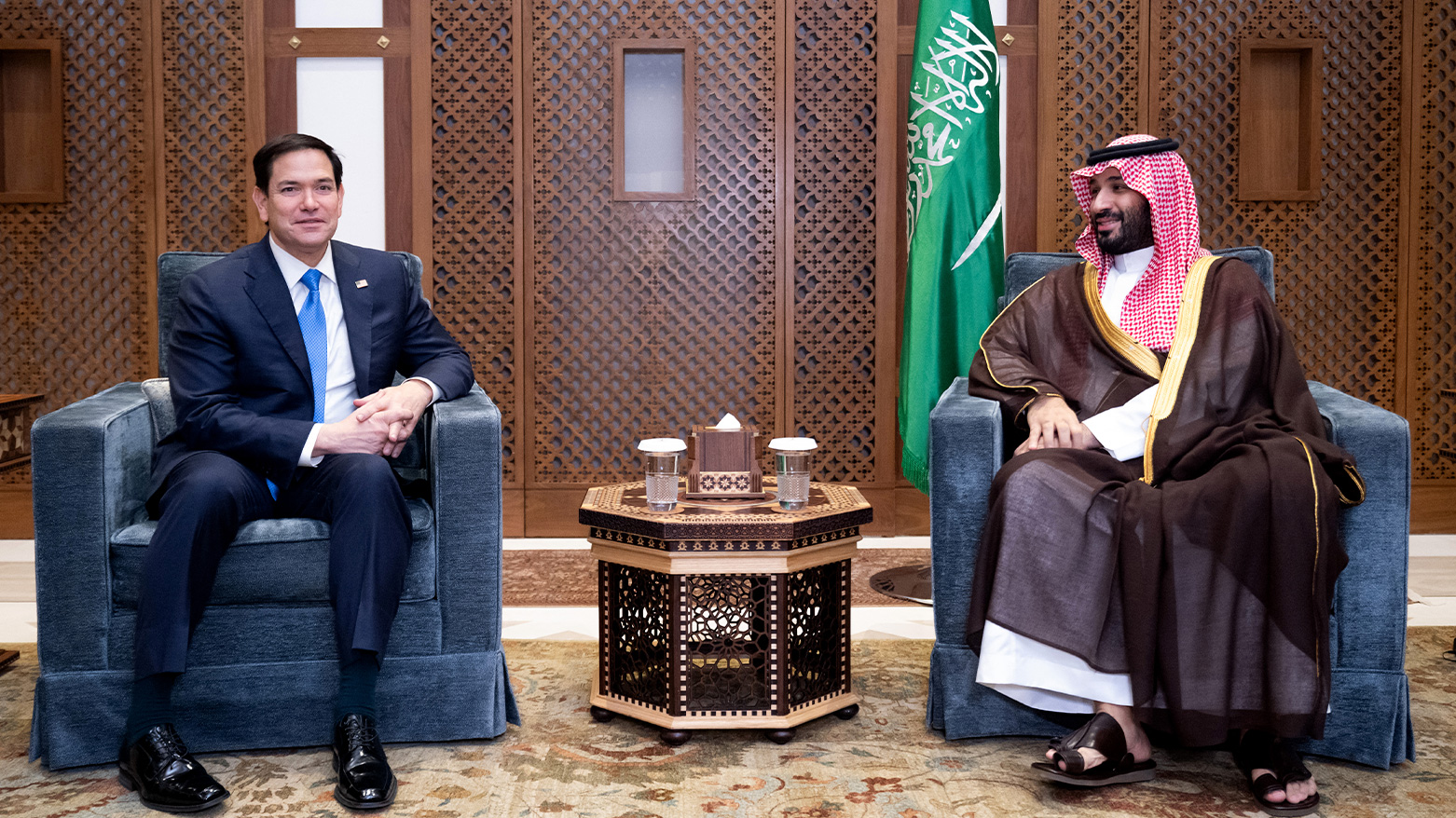Rubio, Waltz Meet in Jeddah with Saudi Crown Prince
Most of the discussion among Rubio, Waltz, and bin Salman dealt with Middle Eastern issues—above all, those involving Iran, even if indirectly.

WASHINGTON DC, United States (Kurdistan24) - U.S. Secretary of State Marco Rubio and National Security Advisor Michael Waltz arrived on Monday in Jeddah, Saudi Arabia’s most important Red Sea port. They came in advance of a meeting on Tuesday with Ukrainian officials, which will be the first such event since the disastrous clash in Washington, a little over a week ago, between U.S. President Donald Trump and Ukrainian President Volodymyr Zelensky.
Read More: What to know ahead of the talks between the US and Ukraine in Saudi Arabia
However, on Monday, Rubio and Waltz first saw the Saudi Crown Prince and its de facto ruler, Mohammed bin Salman. As State Department Spokesperson Tammy Bruce explained in a written statement, they “met this evening with Saudi Crown Prince Mohammed bin Salman Al Saud in Jeddah.”
“The Secretary thanked the Crown Prince for once again hosting the United States in talks to help resolve the Ukraine war and secure a lasting peace,” her read-out said.
Middle East Issues: Houthis, Hamas, Syria
Most of the discussion between the two senior U.S. officials and bin Salman, however, dealt with Middle Eastern issues—above all, those involving Iran.
Riyadh and Tehran are bitter rivals and all three issues that the Americans discussed with bin Salman dealt with Iran, at least indirectly. And there were three such matters: Yemen, Syria, and the war in Gaza.
The first issue that Bruce mentioned involved an Iranian proxy that has been a particular problem for the Saudis: the Houthis. The Houthis have been in conflict with Saudi Arabia since 2004, when they sought to overthrow the Yemeni government in the so-called “Arab Spring.”
The conflict, however, was most intense between 2015, when Saudi forces intervened against the Houthis in Yemen’s civil war, and 2022, when a U.N.-brokered cease-fire was announced–although it has been subject to violations in the time since.
In addition, following Hamas’s brutal Oct. 7, 2023, assault into Israel, the Houthis began attacking shipping in the Gulf of Aden and the Red Sea, ostensibly in support of Hamas.
Thus, as Bruce’s read-out explained, “The leaders discussed Yemen and the threats to navigation from Houthi terrorists that threaten global commerce, American interests, and Saudi citizens and infrastructure.”
The Trump administration has taken a tougher stance than the Biden administration toward Iran and its proxies, and last week it restored the designation of the Houthis as a Foreign Terrorist Organization (FTO.)
Read More: US Renews-Sanctions on Houthis; Offers $15 Million for Information on Finances
That move could only have been welcomed in Riyadh.
Syria: Promoting Stability
In addition, the U.S. delegation “talked about Syria and ways to promote a stable government, free of terrorism,” Bruce continued.
The fall of the Baathist regime of Bashar al-Assad has been a major blow to Iran, which was a close ally of Damascus, and the Saudis have welcomed it.
Most recently, Riyadh has expressed its support for the understanding reached on Monday between the new Syrian government and the Kurdish-led Syrian Democratic Forces (SDF.)
Read More: Syria's government signs a breakthrough deal with Kurdish-led authorities in the northeast
That is also the position of Iraq’s Kurdish leadership, as expressed by Hoshyar Zebari, a long-time opposition figure before the 2003 U.S.-led overthrow of Saddam Hussein’s regime. Subsequently, he served as Iraq’s first post-Saddam Foreign Minister.
Read More: Top KDP official hails agreement between Abdi and al-Sharaa as key step toward stability
Hamas: No Future in Gaza
Most notably, Rubio “reiterated the United States firm commitment that any solution to the situation in Gaza must not include any role for Hamas,” Bruce’s read-out said.
Although the Saudis have not said that, there appears to be no pushback from them. They may even agree with the U.S. position—once again underscoring the extent of Hamas’s miscalculation in carrying out such a brutal assault.
Recently, the Saudis hosted an Arab League meeting to come up with a means to deal with the devastation in Gaza, precipitated by Hamas’s attack. The meeting was intended to develop an alternative to Trump’s proposal that Gaza be turned into the Riviera of the Middle East, while the Palestinians are moved elsewhere.
Read More: Arab Leaders Discuss Palestinian Crisis Amid Regional Uncertainty
The U.S. and Saudi leaders “discussed reconstruction in Gaza,” the U.S. read-out said about their meeting, and “the Secretary thanked the Crown Prince for hosting Arab countries to address the issue.”